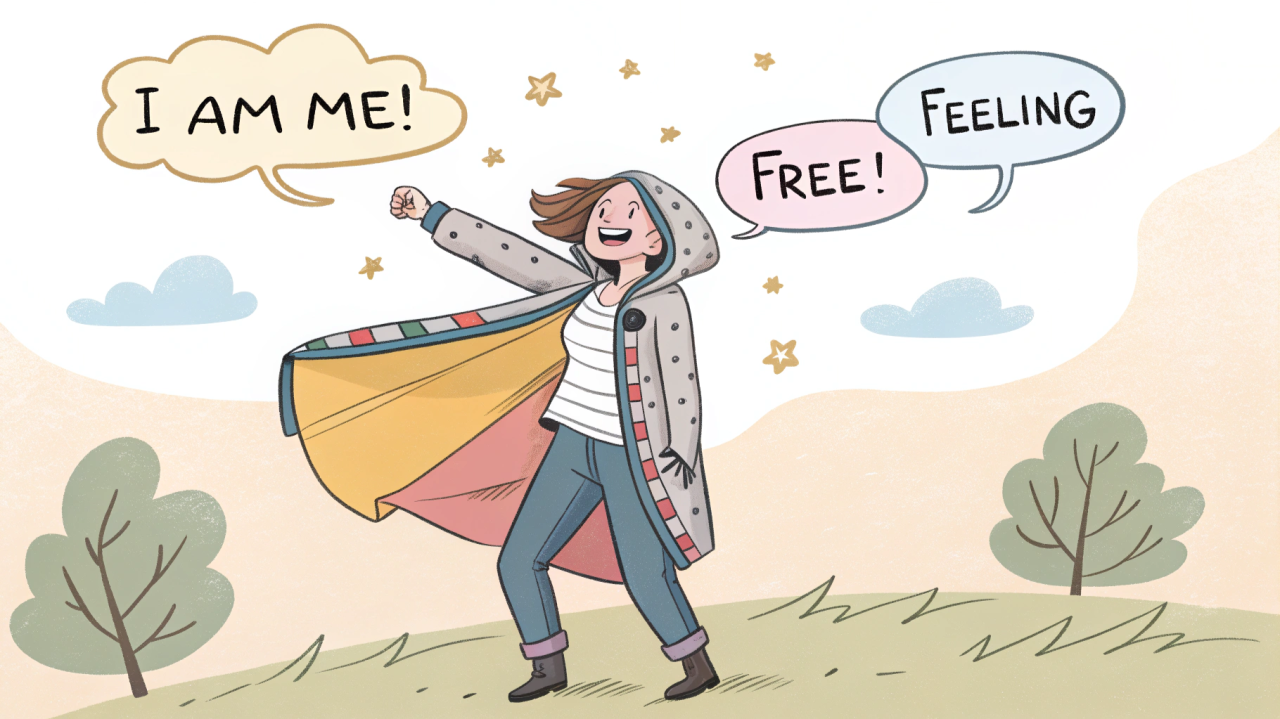
Embracing Rejection and Live a Freer Life

Jaye Lee
Business Strategist for Therapists & Coaches | ICF PCC | Scaled 3 Startups | Certified Mentor Coach & Supervisor | CEO Whisperer for the Helping Professions
Have you ever desperately tried to fit in, only to end up feeling like you’re losing yourself in the process? Or perhaps you’ve smiled through an uncomfortable conversation, just to avoid the possibility of being disliked?
You’re not alone.
We’ve all been there. Trying to be the “nice person” that everyone likes. Many of us spend years trying to please others, seeking validation in places where it just doesn’t belong. Let’s pause for a moment and think:
- What if we stopped worrying about being liked by everyone?
- What if we embraced rejection as part of our personal growth?
In The Courage to Be Disliked by Ichiro Kishimi and Fumitake Koga, the authors suggest a radical idea: Rejection is not something to fear. It’s something to embrace.
Rejection, when handled correctly, can actually be the key to living a more authentic and fulfilling life.
Why We Fear Rejection (And Why We Need to Stop)
As children, we’re taught to get along with others, be kind, and fit in. Fast forward to adulthood, and this desire to “fit in” becomes a deeply ingrained habit that shapes our decisions. We often go out of our way to please others whether it’s staying in a job we hate because we want to be liked by our boss or holding back our true opinions to avoid confrontation.
Psychology Insight: This behaviour aligns closely with Erik Erikson’s psychosocial stages of development, specifically the Social Identity vs. Role Confusion stage (adolescence). In this stage, individuals develop a sense of self through interactions with others. When we’re excessively concerned with pleasing others, we’re often stuck in a state of role confusion, unsure of where our authentic self ends and the expectations of others begin.
We all have a natural desire to belong and be accepted, but when it becomes the driving force of our actions, it leads to exhaustion, frustration, and eventually disappointment.
Trying to be liked by everyone isn’t just exhausting—it’s impossible. You can be the most thoughtful, considerate person in the world, and there will still be someone who doesn’t like you. That’s perfectly okay. Being disliked doesn’t make you a failure. It just makes you human.The Paradox of People-Pleasing: Why It Holds Us Back
When I look back on my own life, I realize how much time I spent trying to please people. I thought that if I could just get everyone to like me, my life would be smoother. Here’s what I learned the hard way: the more I tried to fit into others’ expectations, the more I lost touch with who I really was.
Whether it’s in friendships, romantic relationships, or professional settings, we all face the same pressure: Please others, and you’ll be accepted. But what happens when you lose yourself in that process? You become a version of you that everyone else wants, but not the real you that you actually need.
Psychology Insight: This aligns with Carl Rogers’ Person-Centered Theory, which focuses on the concept of self-concept. Rogers posited that individuals experience congruence (a sense of alignment between the self-concept and reality) when they act authentically. When we constantly shape ourselves to meet others’ expectations, we experience incongruence, leading to anxiety, stress, and a diminished sense of self-worth.
This is where Kishimi and Koga’s book really hits home:
Rejection is the antidote to people-pleasing.
When we stop bending over backwards for the approval of others, we begin to show up as our authentic selves, the person we were always meant to be. That’s the version of you that people will respect and connect with.
Rejection: The Pathway to Personal Freedom
Rejection is uncomfortable, but it doesn’t have to be a dead-end. It’s often a gateway to freedom. When we stop seeking validation, we start doing what truly matters to us. Rejection teaches us to:
- Embrace discomfort: No one likes rejection, but when you learn to sit with it, you start to realize it’s not the end of the world.
- Find strength in who you are: The more you show up authentically, the more you realize that being yourself is enough.
- Live according to your values: Instead of trying to please everyone, you get to focus on what you want and what feels true to you.
Psychology Insight: This echoes the principles behind Albert Ellis’ Rational Emotive Behavior Therapy (REBT). REBT is built on the idea that irrational beliefs (such as the need for universal approval) lead to emotional distress. When we let go of the belief that we need to be liked by everyone, we free ourselves from the emotional burden of trying to meet impossible standards.
The beauty of rejection is that it challenges us to make decisions based on who we truly are, not on who we think we should be. It’s a freeing feeling that allows you to live a life that’s in alignment with your deepest desires.The Power of Rejecting Approval in Everyday Life
Whether you’re trying to make a big career move, navigating relationships, or simply pursuing personal goals, rejection will inevitably show up.
When you stop fearing rejection and instead embrace it as part of your growth, you open yourself up to a world of possibilities.
Psychology Insight: This is in line with Abraham Maslow’s Hierarchy of Needs, specifically the need for esteem. Maslow suggested that after fulfilling basic survival needs, we seek validation from others, but the highest level of self-actualization comes when we realize that self-esteem, not external approval is the true key to fulfillment.
Have you ever faced rejection in a job interview or an opportunity you really wanted? It stings, doesn’t it? But what happens when you look back? You realize that the rejection wasn’t the end. It was the beginning of a new chapter, one where you’re forced to reevaluate your approach, grow, and come back stronger.
Rejection Teaches You What You’re Made Of:
For instance, imagine applying for a job you really want. The rejection letter hits you hard at first, but then you take a step back and realize that maybe this job wasn’t your true calling. Maybe it’s time to reassess your career path or go after something that truly excites you.
Instead of seeing rejection as failure, see it as an opportunity to reassess, recalibrate, and come back with renewed focus and energy.
Living Freely: Embrace Rejection, Live Authentically
The biggest lesson I’ve taken away from The Courage to Be Disliked is this: You don’t need to be liked by everyone to live a fulfilling life. The less you focus on other people’s approval, the more energy you have to devote to the things that truly matter: your own growth, your relationships, and your happiness.
Rejection isn’t the enemy; it’s part of the journey. It’s the universe’s way of telling you that you’re moving in the right direction, even if it’s not always the easiest path.
Living a Life You Love:
- Rejection is part of growth. It’s uncomfortable but necessary for becoming who you’re meant to be.
- Stop people-pleasing. The more you try to be liked, the more you lose your authenticity.
- Embrace discomfort. Life’s challenges (and rejections) are the stepping stones to personal freedom.
- Trust yourself. The real you is enough, and the more you trust your true self, the more fulfilling your life will be.
So, what are you going to do with this newfound freedom?
Start by embracing the uncomfortable stuff. Whether it’s saying no when you really need to or rejecting societal expectations of who you should be, each step you take will get you closer to the authentic version of yourself.
And hey, if you’re ready to dive even deeper into embracing your authentic self and living a life free from constant validation, let’s talk about it. Drop your thoughts below, or connect with me directly.
#PersonalGrowth #SelfDevelopment #Rejection #Authenticity #SelfLove #LivingFreely #MindsetShift #PersonalFreedom #GrowthJourney #CourageToBeDisliked #OvercomingFear #StopPeoplePleasing #BeYourself #LiveAuthentically #GrowthMindset Oneness Consultancy & Academy Vincent Wong Ph.D.

0 Comments